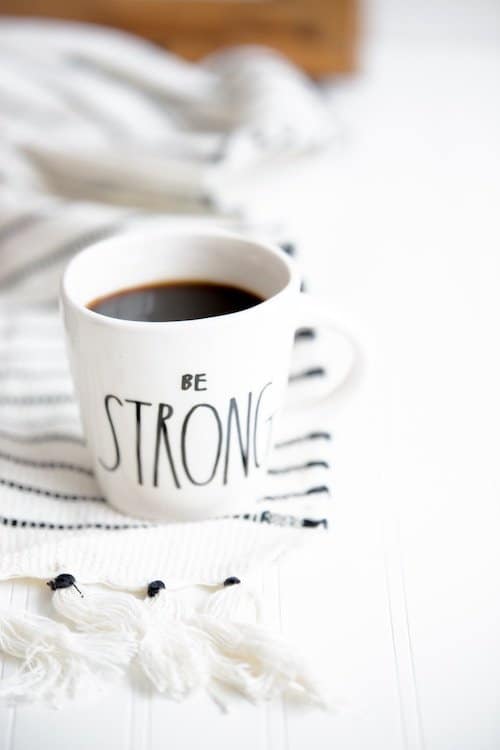6 Foods to Eat For Better Bone health
When it comes to eating to support better bone health and prevent osteoporosis, most of us think of dairy foods, but it’s not just about calcium. There are a few other nutrients and foods that women should include in their diet, especially if you’re at risk for osteoporosis.
I couldn’t turn the calendar on Women’s Health Month without a quick mention of the link between diet and bone health. After menopause, the risk of osteopenia (thinning bones) and osteoporosis (brittle bones) increases considerably, and it becomes even more important to eat well and be physically active to support good bone health.
Just like all of the other tissues and organs in our body, our bones are alive. They’re constantly breaking down and rebuilding. Around the time we turn 30, however, that process of bone rebuilding (or remodeling) slows down and bones slowly start to break down more than they grow.
Things really come to a screeching halt right around the time of menopause.
Most women will lose about 50% of their inner bone, and 30% of the outer layer of bone tissue over the course of their life. About half of that is lost starting about the year before, until about 3 years after menopause. Unfortunately, there's usually no signal telling us when menopause will happen - so my advice is to be prepared, by eating more of these foods which can help make your bones more dense and slow bone loss.
My 6 Favorite Foods for Bone Health
You probably know about the importance of calcium and vitamin D to help maintain your bone density. Weight-bearing exercises like walking, running or strength training are also essential. That's really just the tip of the iceberg though. There are quite a few other nutrients that are essential in order to maintain bone health, and while you can certainly take lots of supplements, it's pretty easy to get them through real foods. Here are my favorites, and why they're a good choice:
Prunes
Bone health is definitely what they're famous for, but prunes are one of the best foods you can eat to help maintain your bone density (1). Really. They contain a range of important phyto-compounds, as well as vitamin K, which helps calcium to get into your bones. Research on prunes and bone health suggests that about a serving a day (about 10-12 dried prunes) is enough to minimize bone resorption and increase bone formation in postmenopausal women. And they count toward your fruit goal too!
Grass-fed beef, butter, and cheese
These high-fat foods that come from grass-fed cows are a good source of vitamin K2, which plays an important role in getting calcium (especially from supplements) into your bones instead of letting it stay in your bloodstream. Too much calcium from supplements can end up getting stuck in your blood vessels, which may increase your risk of heart disease, so vitamin K2 helps calcium get to where it's needed most. I'm not suggesting you indulge in these foods, but when you do eat meat, cheese or butter, make it's grass-fed, so you can get that extra boost of vitamin K2.
Tea
It's the most popular beverage in the world, and because of the amazing range of antioxidants and polyphenols in tea, it's one of the healthiest beverages you can drink too. Numerous research studies, including a recent one on middle-aged and older Chinese women, show tea drinkers have stronger bones and a lower risk of osteoporosis than those who don't drink tea (2) - so raise a cup to your bones!
Sardines
Sardines provide both calcium and vitamin D in every bite. These little guys are also packed with inflammation-fighting omega-3 fats, and a good dose of protein, so they're a great choice to boost your bones while keeping the rest of you healthy too.
Dark chocolate
Everything in moderation, right? That includes dark chocolate, which not only satisfies your sweet tooth but is also a great source of the mineral magnesium. Magnesium plays many important functions in the body, including contributing to bone health. Although many different foods provide magnesium, diets that include many processed foods can be low, and low levels of magnesium are associated with more brittle bones. To get enough of this mineral, make sure you eat lots of nuts, legumes, avocado - and if you like, a bit of dark chocolate.
Tofu
Tofu is a good source of calcium, and it's rich in compounds called isoflavones, which have wide-ranging health benefits. Some studies suggest that the isoflavones in whole soy foods, like tofu or it's cousin, tempeh, can help to maintain bone density by limiting bone resorption (loss) and enhancing bone remodeling or growth (3). When choosing tofu or tempeh, always look for organic, and avoid processed soy products which aren't a good source of isoflavones.
So, in addition to getting your 1,200 mg of calcium and 1,000 IU of vitamin D each day, make sure you're eating a well-balanced diet that includes the above foods, and use supplements to fill in any gaps. Read more about important ways to maintain your bone health in my post on Bone Suckers and Bone Builders.
[bctt tweet="Strong bones need more than just #calcium. Do you eat enough of these #BoneBuilding foods? #womensHealth #osteoposoris #strongbones " username="CraveSomeHealth"]
References
- Wallace TC. Dried Plums, Prunes and Bone Health: A Comprehensive Review. Nutrients. 2017 Apr 19;9(4):401.
- Huang H, Han GY, Jing LP, Chen ZY, Chen YM, Xiao SM. Tea consumption is associated with increased bone strength in middle-aged and elderly Chinese women. The journal of nutrition, health & aging. 2018 Feb 1;22(2):216-21.
- Sathyapalan T, Aye M, Kilpatrick ES, Rigby AS, Fraser WD, Thatcher NJ, Atkin SL. Soy protein with isoflavones reduce bone turnover markers in women during their early menopause-a randomised double blind parallel study.

